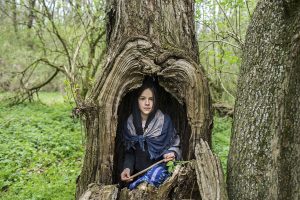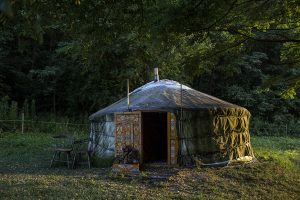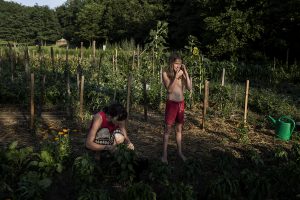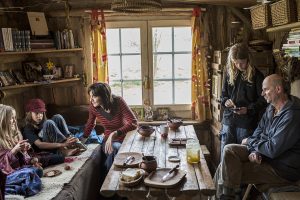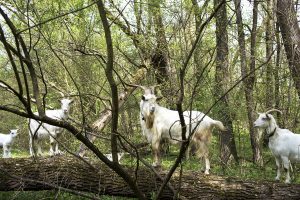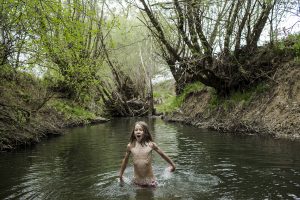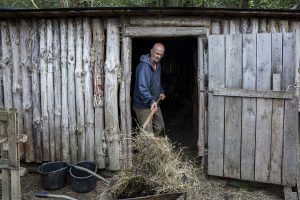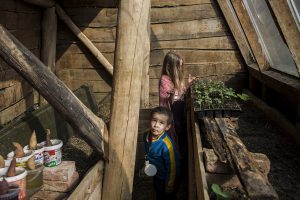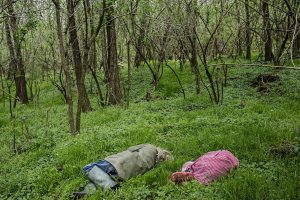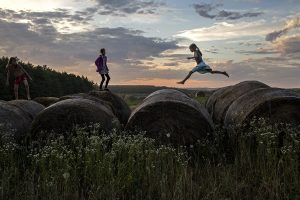

- Boróka az erdőben.A gyerekek ismerik az összes növényt az erdőben és tudják, hogy mi ehető és mi nem. // Boróka in the forest. The children know all of the plants, and they know exactly what is edible, what is not.
- Vendég jurta. // Guest yurt.
- Andrea és Bojti a zöldségeskertben.Lassan teljesen önfentartó lesz a család. // Andrea and Bojti in the vegetable garden. Slowly the family is becoming self-supporting.
- A téli konyhában minden nap a reggeli után megbeszélik a napi teendőket. // In the winter kitchen they talk about the daily tasks every morning.
- A család a hindu vallásban találta meg a hitét. Húst és tojást nem esznek.Az állatokat azért tartják,mert szeretik őket, és szeretnék,ha a gyerekek is megtanulnák a gondoskodást és a felelőséget. // The family has found their religion in Hinduism. They do not eat meat and eggs. The animals are kept only because the family love them, and the parents want the children to learn how to care for them, and how to be responsible.
- Bojtorján a pár fokos Zalában. // Bojtorján in Zala in only a few Celsius degrees.
- Péter gondozza a marhákat. // Péter is taking care of the cows.
- Bíborka és a friss palánták.A gyerekek is kiveszik a részüket a mindennapi munkából. // Bíborka and the fresh plants. The children do their share in the everyday duties.
- Bendegúz és Bíborka az erdő sűrűjében.Ismernek minden növényt.Tudják melyik ehető és melyik nem. // Bendegúz and Bíborka in the thick of the forest. They know exactly what is edible, what is not.
- Esti fogócska. // Evening tig.
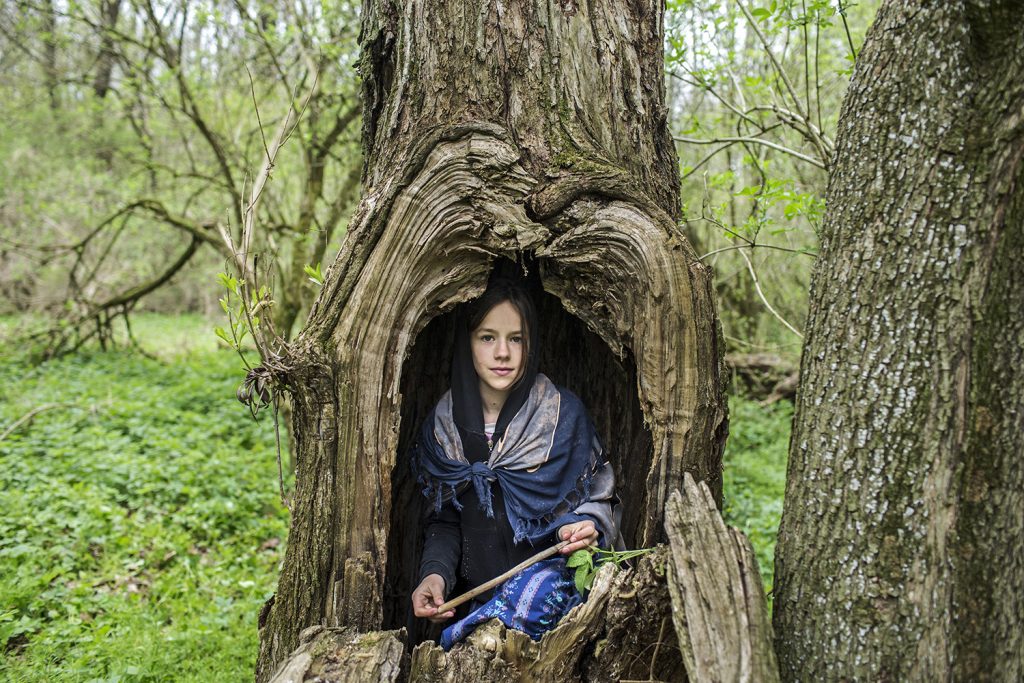
Boróka in the forest. The children know all of the plants, and they know exactly what is edible, what is not.
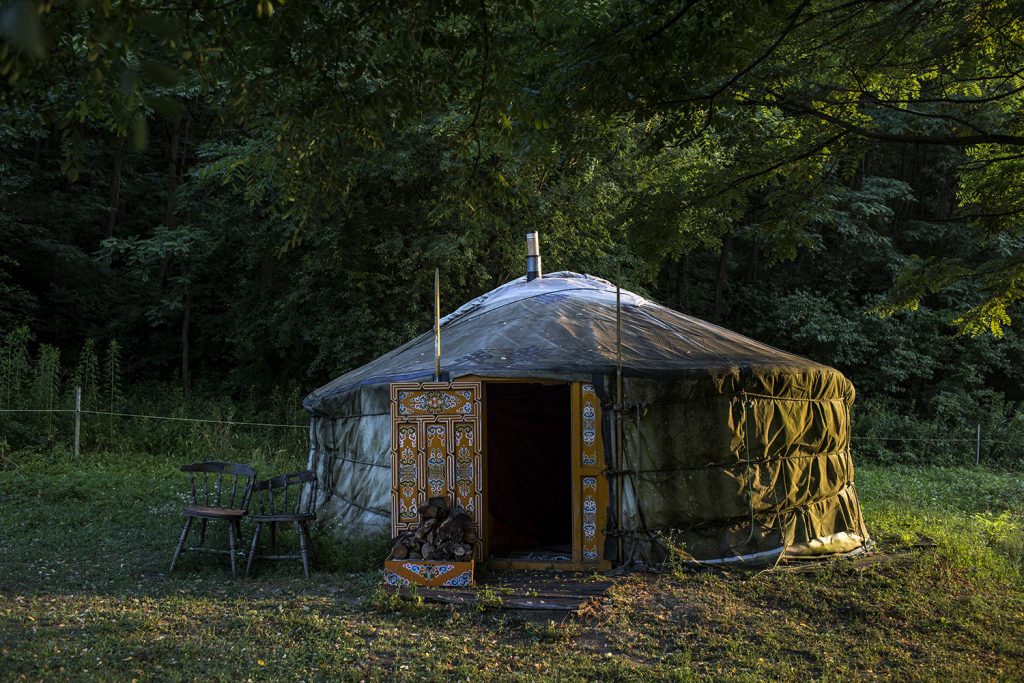
Guest yurt.
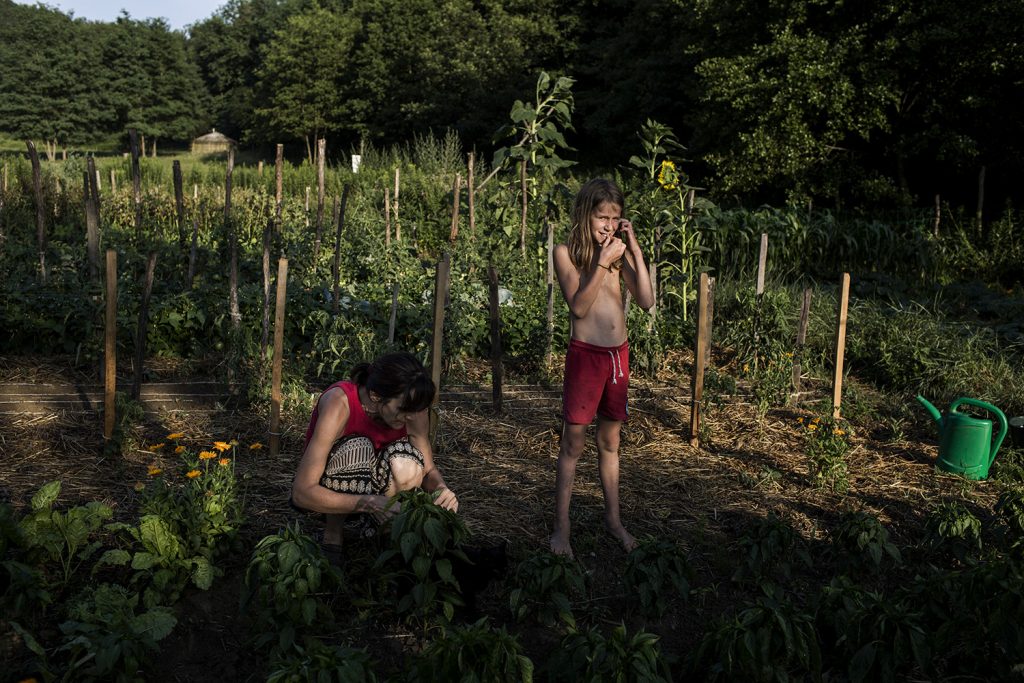
Andrea and Bojti in the vegetable garden. Slowly the family is becoming self-supporting.
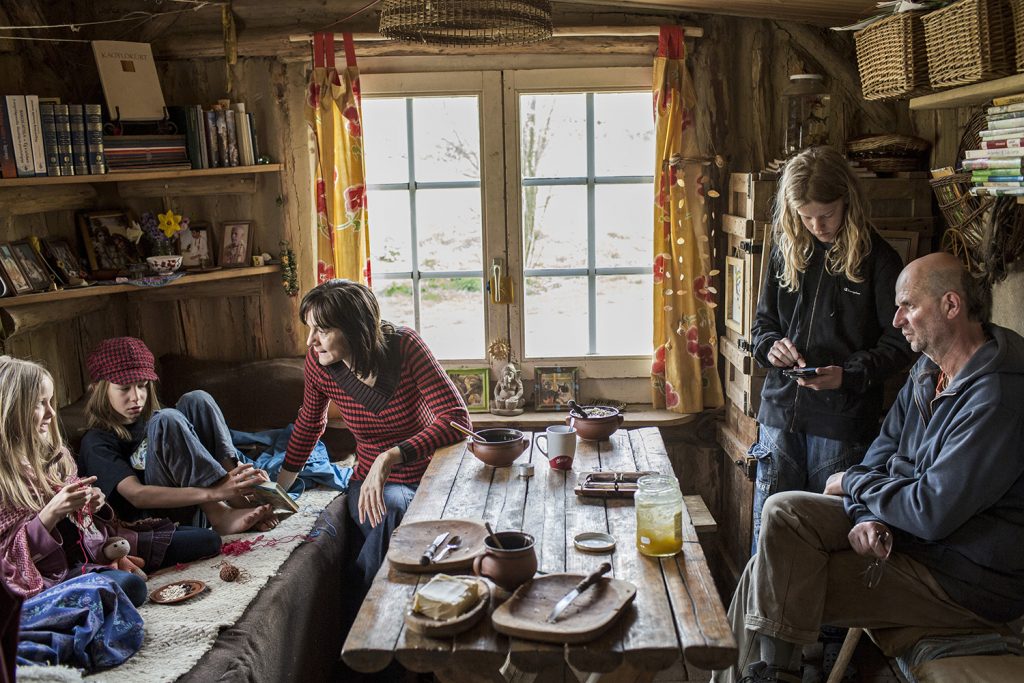
In the winter kitchen they talk about the daily tasks every morning.
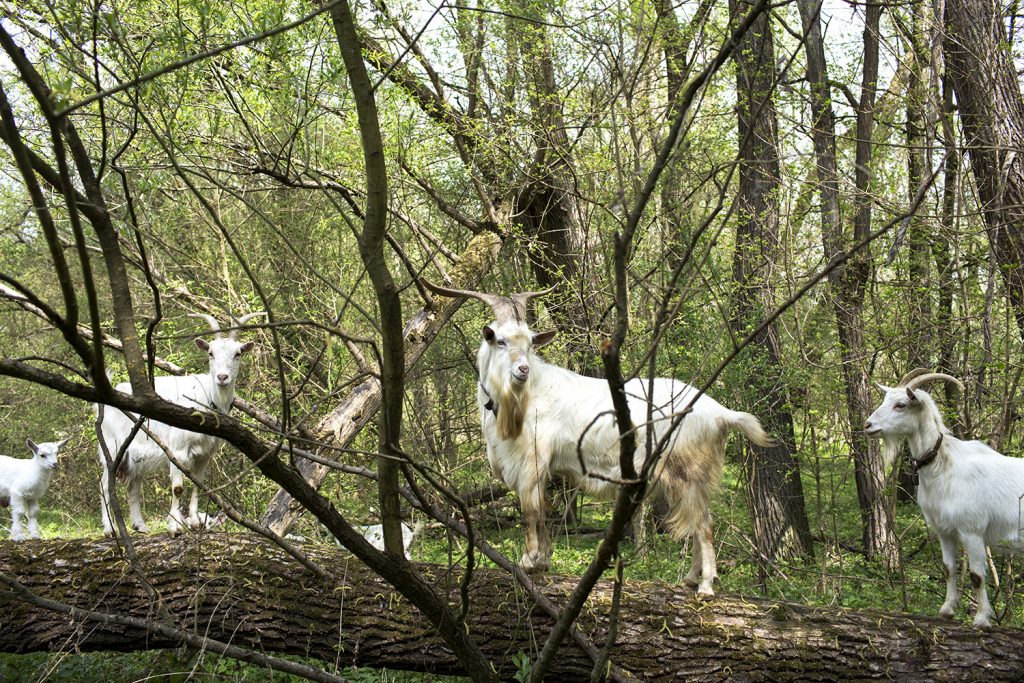
The family has found their religion in Hinduism. They do not eat meat and eggs. The animals are kept only because the family love them, and the parents want the children to learn how to care for them, and how to be responsible.
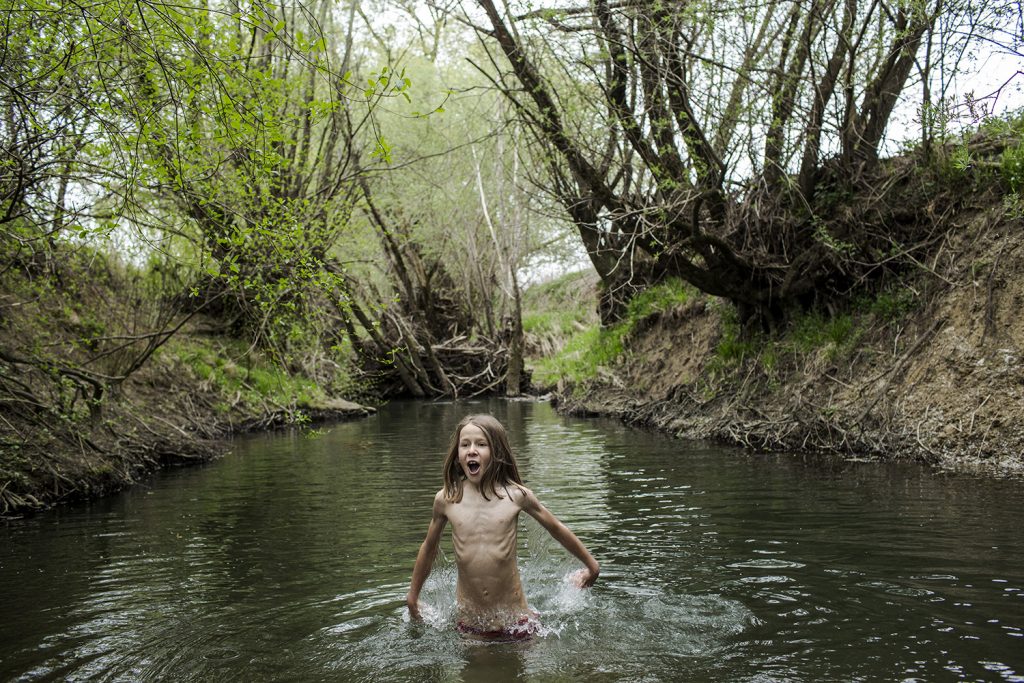
Bojtorján in Zala in only a few Celsius degrees.
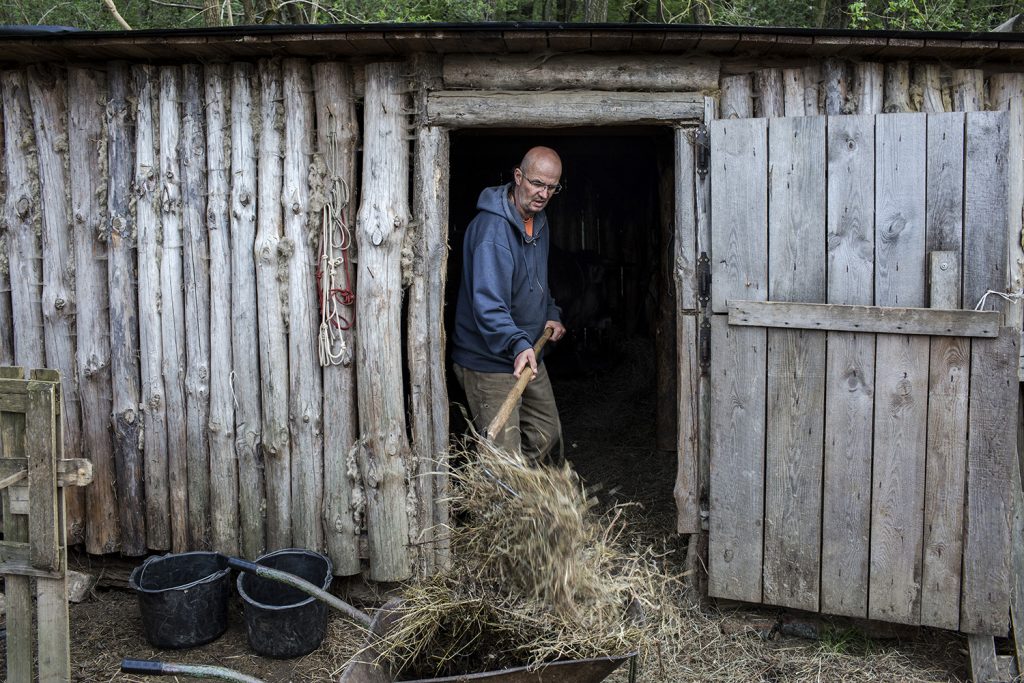
Péter is taking care of the cows.
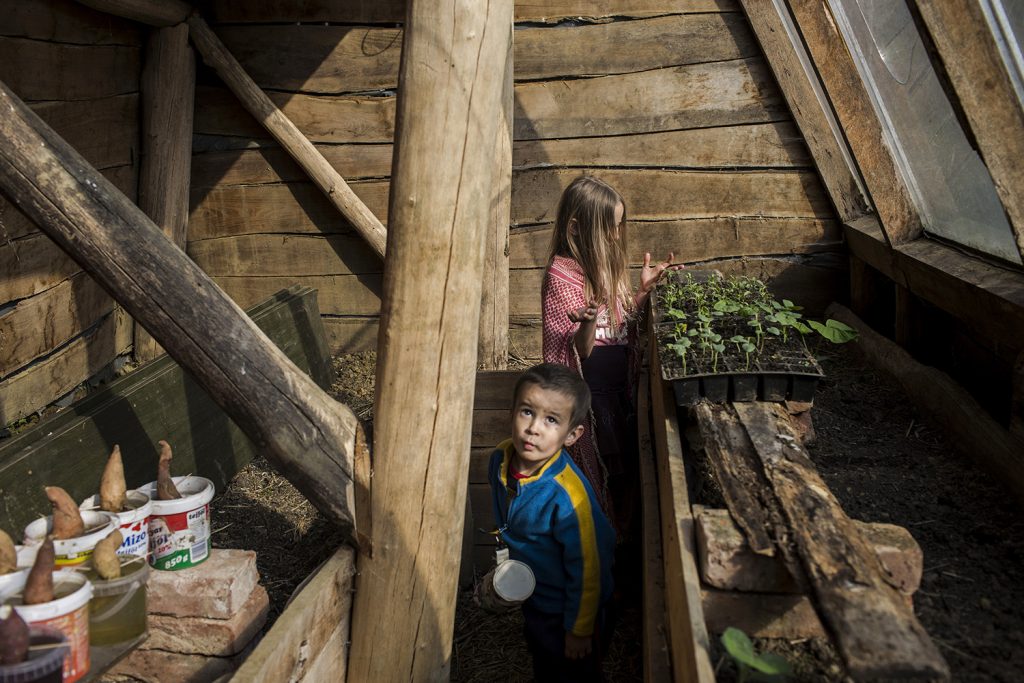
Bíborka and the fresh plants. The children do their share in the everyday duties.

Bendegúz and Bíborka in the thick of the forest. They know exactly what is edible, what is not.
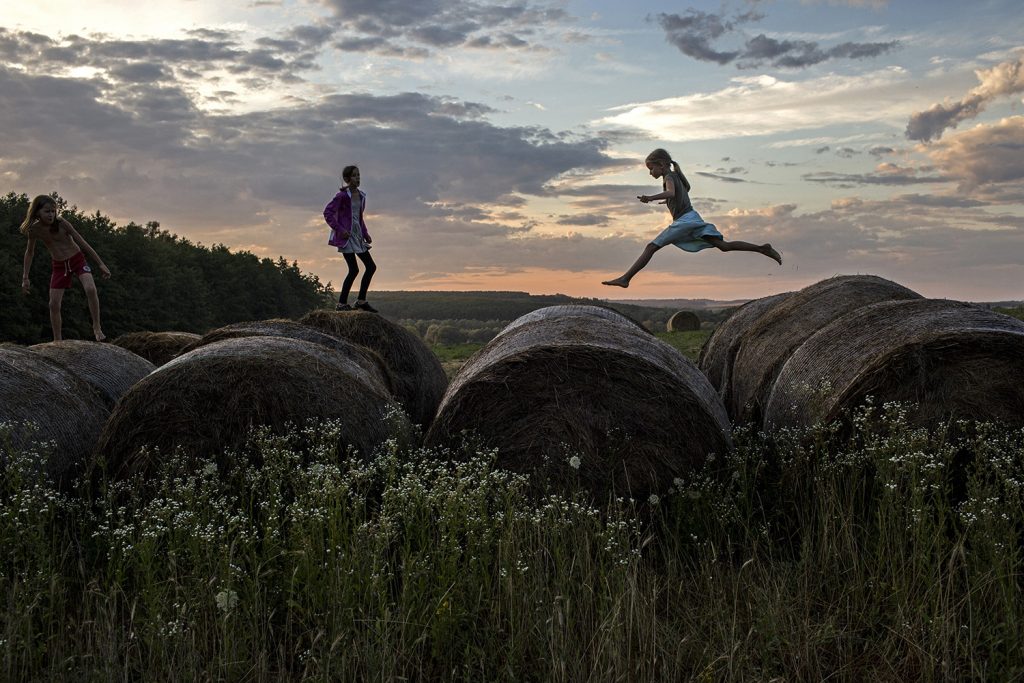
Evening tig.
The Paulics family
The Paulics family with four children live at the edge of the Göcsej woods far from the noise of the town. The family owns a ten-acre farm. They hope to become fully self-supporting. They grow wheat, vegetables and fruit. They keep cows and goats. Milk is used for making cheese and butter. The children study at home and have very good results at the school exams in the nearby school. Despite the fact that they have chosen to live in the nature instead of the noise of the the town, the children are not isolated from the outside world. The children have already been abroad, in Budapest, and at sea, too. They use the internet, the telephone and tablet, this latter only when the parents are near. They believe that going back to nature can change the negativity and the rush of today’s world.

